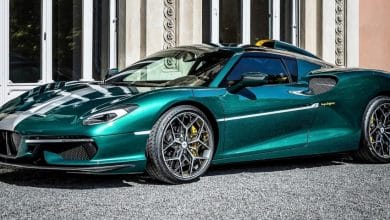Test drive | Volvo V60 plug-in hybrid: a lonely and noble fight
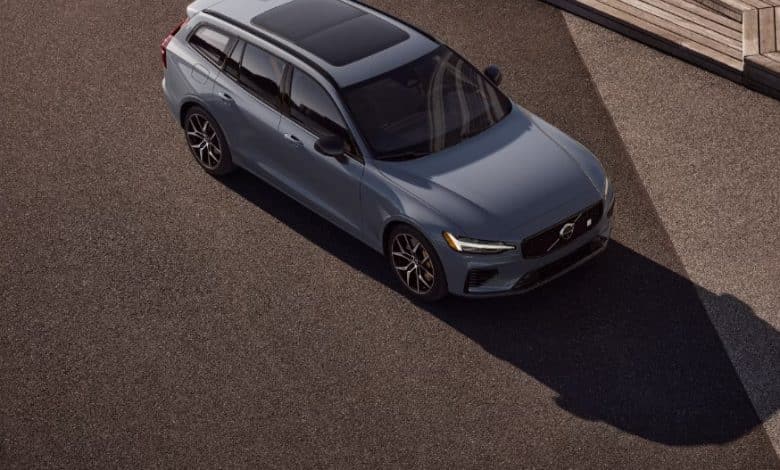
Contents [hide]
Design

PHOTO PROVIDED BY VOLVO
The hatchback body of the 2024 Volvo V60 Polestar Engineered relies on horizontal lines to establish its identity as well as harmoniously integrated overhangs.
It's been six years since the latest generation of the V60 made its debut. Barely revised over the years stylistically, the model stands up remarkably well to the wear and tear of the years. We owe this observation to the harmonious proportions of this two-box body relying on horizontal lines to establish its identity as well as harmoniously integrated overhangs. The headlights are presented with these “Thor’s hammers” in diodes which add to the refinement. The rear is still defined by these lights which hug the pillars and wings to fall onto the vertical tailgate. The only livery available, the Polestar Engineered version stands out with its 19-inch forged rims whose thin stems slightly camouflage the large gold front calipers.
On board
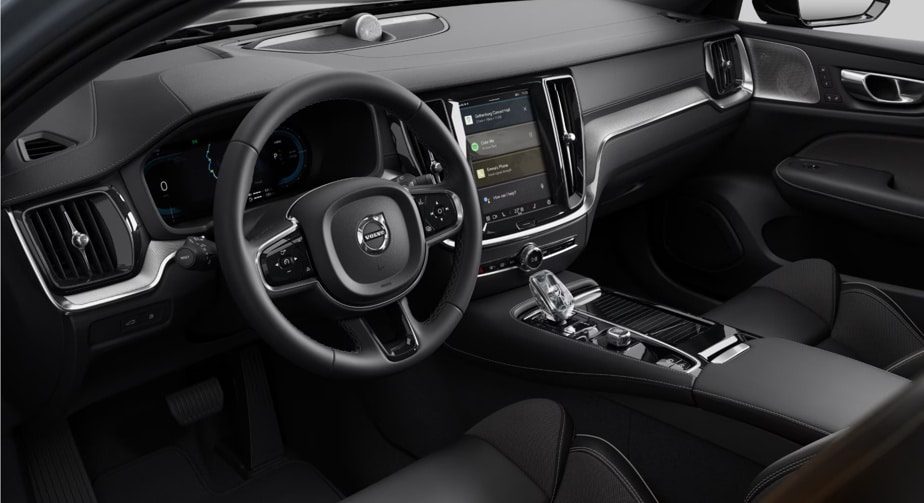
PHOTO PROVIDED BY VOLVO
The interior of the 2024 Volvo V60 Polestar Engineered
The refined and functionalist approach which has long characterized the Swedish design movement dictates the interior layout of this V60. The symmetrical dashboard does without extravagance with its symmetry and its dark colors complemented by the metallic appearance of certain moldings which visually separate the top and bottom. It's very elegant and the assembly is done with care. Despite the practical aspect of the rear trunk (529 L), the wagon limits its storage space at the front, a defect observable in many Volvos of this generation. So it's hard to find a suitable place for a larger cell phone, other than cup holders. The V60 improves on legroom and headroom, which makes it a formidable family vehicle. A significant protrusion, created by the presence of the battery in the center, however makes the central rear seat almost unusable.
Under the hood
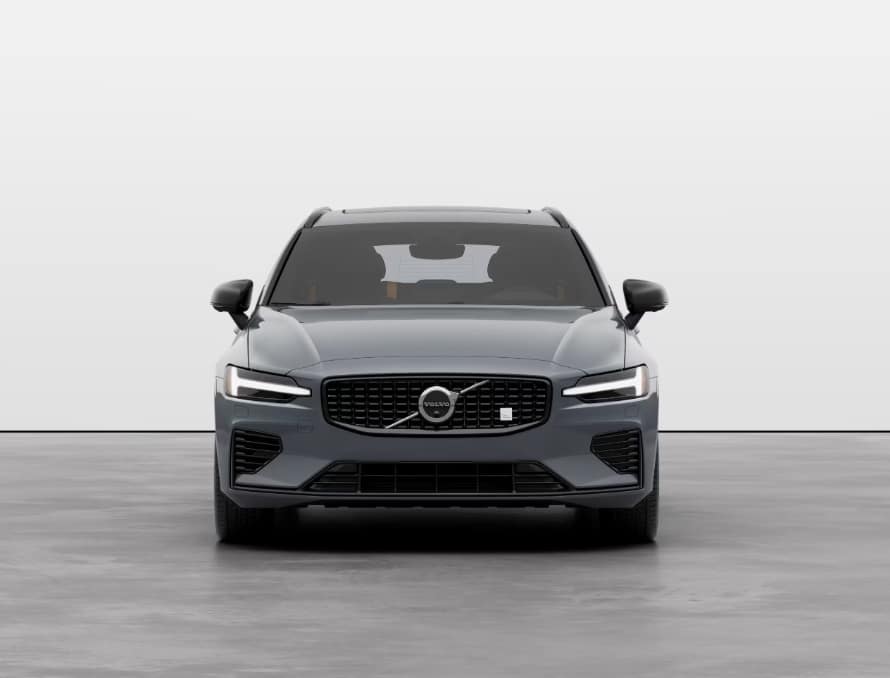
PHOTO PROVIDED BY VOLVO
The 2024 Volvo V60 Polestar Engineered has a plug-in hybrid unit consisting of a 2.0L turbocharged four-cylinder (312 hp).
Excluding the Cross Country variant, only one mechanism is available to you under the hood of the V60, but not just any engine. It is a plug-in hybrid unit composed of a 2.0L turbocharged four-cylinder (312 hp) which can be silenced on request to leave the task to the rear electric motor (143 hp). The range drawn from an 18.8 kWh battery turned out to be around 50 km during the test, an acceptable decline due to the conditions compared to the 64 km estimated by Volvo. Greatly improved two years ago, this powertrain delivers its 455 hp with confidence and admirable smoothness. Its eight-speed automatic transmission seems to be the only notable element that slightly limits its ardor, presenting a marked response delay in certain contexts.
Behind the wheel

PHOTO PROVIDED BY VOLVO
This V60 receives mechanically adjusted Öhlins shock absorbers and firmer springs, which considerably degrades the ride.
Revised by Polestar brand engineers for agility, this V60 receives mechanically adjusted Öhlins shock absorbers, firmer springs as well as a strut bar that is clearly visible when the front hood is lifted. These additions, which recall a form of tuning which we thought were over, unfortunately degrade! considerably the turnover. The surfaces cracked by our see-saw winter cause a constant rebound effect, especially at low and medium speeds. The occupants are thus shaken like plum trees, which makes each journey grueling. On the other hand, the wagon has dynamic poise, an advantage which unfortunately cannot outweigh the disadvantages. It's a shame, because the chassis blends admirably well with the grip of the powertrain which contains the understeer, in the absence of having steering with an evocative feel.
Embedded technologies

PHOTO PROVIDED BY VOLVO
The infotainment screen of the 2024 Volvo V60
This is where the V60 shows its age. Its multimedia system, whose front door is a 12.3-inch vertical screen, is simply outdated by the more modern interfaces of many general manufacturers. The quality of the definition, its slowness and the stability of CarPlay make it uncompetitive. On the other hand, it is compatible with Google applications, which makes it easier to dock with Android products. The digital instrumentation is at the same time a little too simplistic, its configuration being limited to a reduced list of functions. Mind you, this helps make it significantly less distracting. The Bowers & Wilkins audio system also does an impeccable job with its crystal-clear sound that embraces the most complex musical nuances.
The verdict
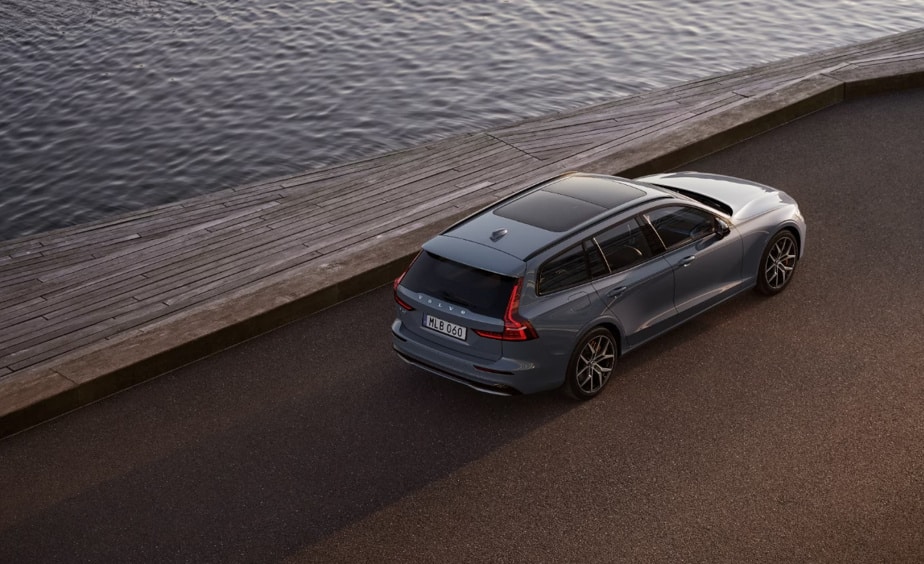
PHOTO PROVIDED BY VOLVO
The 2024 Volvo V60 Polestar Engineered combines the practicality of an SUV with the dynamism of a car.
After a week of testing, one question remains about this V60 Polestar Engineered: who is it for? Certainly, the practical aspect of its interior and its efficient plug-in powertrain make it a good candidate for a family or an individual wanting the practical aspect of an SUV linked to the dynamism of a car. But its concrete suspension requiring lifting the vehicle to make the slightest adjustment to the rear shock absorbers seems designed primarily for smooth closed circuits. It therefore targets an audience of purists who will undoubtedly be satisfied by the precision of its direction, but put off by its overly disconnected performance and the presence of not very expressive mechanics. This V60 therefore evolves alone in a gray zone, a noble quest… against itself.
Notebook
Rather slow loading
Due to its charging power limited to 3.7 kW at a residential terminal, it takes five hours to fully recharge its battery without a fast charging option.
Accelerations worthy of sports cars
With a 0-100 km/h estimated at 4.6 seconds according to Volvo, this V60 is very energetic thanks to its reserve of torque (523 lb-ft) obtained by the juxtaposition of its turbocharged engine to the rear electric motor.
Hidden driving modes
For a car with a sporty bent, this V60 hides the driving modes too well in the multimedia system interface. It also does not offer steering wheel paddles to control its transmission.
Good visibility
The large glass surface obtained from the body design of this station wagon limits the obstruction of outward visibility.
Very comfortable seats
Thanks to a variety of adjustments offered both in terms of the seat and the lumbar and lateral supports, the seats of this V60 are very comfortable and supportive.
Technical sheet
- Test version: Volvo V60 plug-in hybrid Polestar Engineered
- Engine: L4 DOHC 2L turbo + rear electric motor
- Power: 312 hp at 6000 rpm (combustion engine) + 143 hp (electric motor) for 455 hp in total
- Torque: 295 lb-ft from 3000 to 5400 rpm (combustion engine) + 228 lb-ft (electric motor) for 523 lb-ft in total
- Transmission: Eight-speed automatic with manual mode
- Motor architecture: Front transverse thermal engine, rear electric motor
- Consumption and autonomy (EnerGuide): 7.6 L/100 km and 64 km
- Price (with options, transportation and preparation): $80,120
- Direct competitors: None
- Anything new in 2024? : No major changes





